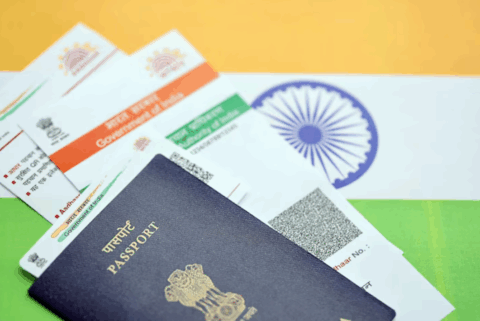Suo Motu Action on POCSO Cases: Supreme Court’s Push for Timely Justice

The alarming increase in incidents of sexual offences against children in India has been a subject of national concern for over a decade. In response, the Protection of Children from Sexual Offences Act, 2012 (POCSO Act) was enacted as a special legislation designed to comprehensively address crimes involving sexual abuse and exploitation of children.
Despite its progressive framework, the implementation of the POCSO Act has faced significant challenges, particularly in terms of infrastructure, delays in investigation, lack of specialized personnel, and insufficient sensitivity in handling such cases. These systemic gaps were thrust into judicial focus by the Supreme Court of India in the Suo Motu Writ Petition (Criminal) No. 1 of 2019, initiated under the title In Re: Alarming Rise in the Number of Reported Child Rape Incidents.
Table of Contents
Legal Framework of the POCSO Act
The POCSO Act criminalizes a range of sexual offences against children, including penetrative and non-penetrative sexual assault, sexual harassment, and pornography involving minors. The Act is stringent in its procedures mandating child-friendly reporting, recording, and trial processes and prescribes specific timelines: completion of investigations within two months and disposal of trials within six months.
However, even with these statutory directives, significant delays have persisted, particularly due to infrastructural inadequacies and insufficient trained personnel.
Genesis of the Suo Motu Case
On July 12, 2019, the Supreme Court took suo motu cognizance based on disturbing news reports and rising statistics of child sexual abuse cases. Recognizing the urgent need for ju dicial intervention, the Court sought assistance from Senior Advocate Mr. V. Giri (appointed as Amicus Curiae) and directed the registration of a suo motu writ petition.
Following submissions by the Amicus Curiae, Solicitor General Mr. Tushar Mehta, and Registrar Mr. Rathi, the Court issued comprehensive directions in an order dated July 25, 2019, to overhaul the framework for adjudication under the POCSO Act. aimed at streamlining investigations, expediting trials, and mandating the establishment of dedicated POCSO courts. This marked the beginning of nearly six years of continuous judicial monitoring, culminating in the Court’s final judgment on May 15, 2025, which assessed the implementation status across States and formally concluded the suo motu proceedings.
Key Directives from the Supreme Court
The judgment emphasized the following measures to be implemented forthwith:
- Establishment of Exclusive POCSO Courts: In every district with more than 100 POCSO cases, special courts dedicated exclusively to such offences were mandated. These courts are to try no other category of crime.
- Central Government Funding: The infrastructure, including appointment of presiding officers, support staff, Special Public Prosecutors, and creation of child-friendly environments, was to be financed under a central scheme.
- Appointment of Sensitive Personnel: Both support persons and Special Public Prosecutors must be not only qualified but also oriented toward child rights and sensitive to children’s needs.
- Public Awareness Initiatives: The Court directed that child abuse awareness content be displayed in cinema halls and public spaces, with helpline numbers prominently featured.
- Forensic Infrastructure: Noting delays in forensic reporting as a major cause of prolonged investigations, the Court called for the effective functioning of existing Forensic Science Laboratories (FSLs) and contemplated designated FSLs for POCSO cases in the future.
Ongoing Oversight and Implementation Challenges
Over the next several years, the Court monitored implementation through periodic orders. Notably, on November 13, 2019, it required State and Union Governments to ensure adherence to investigative and trial timelines. Further, on December 16, 2019, specific directions were issued for high-pendency states like Uttar Pradesh and West Bengal to expedite the setup of exclusive courts.
The Court also considered establishing a national compensation scheme for POCSO victims and directed State governments to address issues such as lack of dedicated FSLs, shortage of Public Prosecutors, and inadequate victim and witness protection, referencing high-profile cases such as Unnao.
Status Review and Final Judgment (May 15, 2025)
After years of monitoring and engagement, a final status report was submitted by the Amicus Curiae and Senior Advocate Ms. Uttara Babbar on September 24, 2024. The report included detailed, state-wise data on pending cases and the functioning of POCSO courts.
While a majority of States had implemented the Court’s directions with central funding, States like Tamil Nadu, Bihar, Uttar Pradesh, West Bengal, Odisha, and Maharashtra still required more infrastructure due to persistent backlogs.
Reiterating the importance of adhering to the statutory timelines under the POCSO Act, the Supreme Court urged both Central and State governments to:
- Prioritize the filing of charge sheets within stipulated periods,
- Complete trials without delay, and
- Establish and maintain exclusive courts and trained personnel for effective delivery of justice.
In concluding the proceedings, the Court recorded its appreciation for the invaluable assistance of Mr. V. Giri and Ms. Babbar, and formally closed the suo motu matter.
Conclusion
The Supreme Court’s proactive stance in Suo Moto W.P. (Crl.) No. 1/2019 sets a critical precedent for judicial intervention in systemic failures. It underscores the judiciary’s role in upholding the intent of protective legislations like the POCSO Act not just in letter, but in spirit. While meaningful progress has been made, the road ahead requires sustained governmental commitment to ensure that the justice system remains responsive to the most vulnerable—our children.
For more details, write to us at: contact@indialaw.in
By entering the email address you agree to our Privacy Policy.



